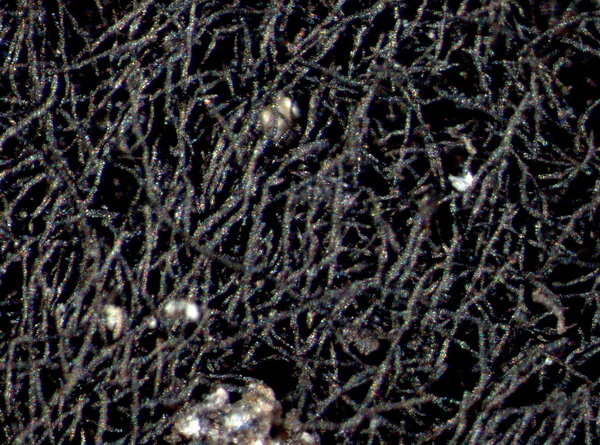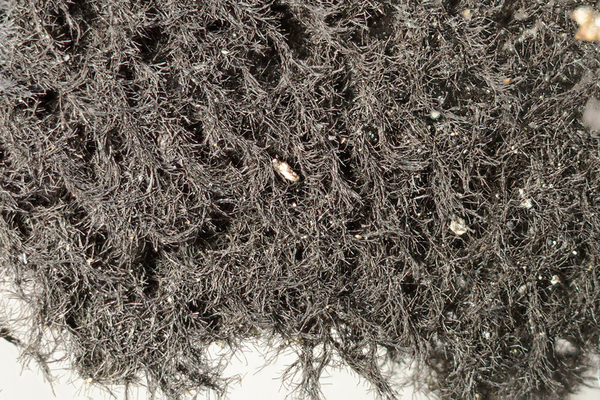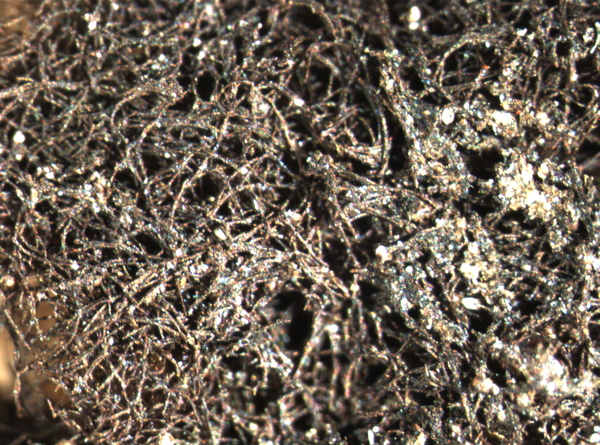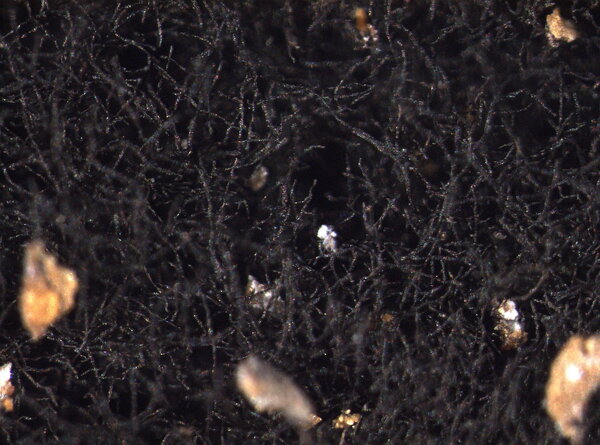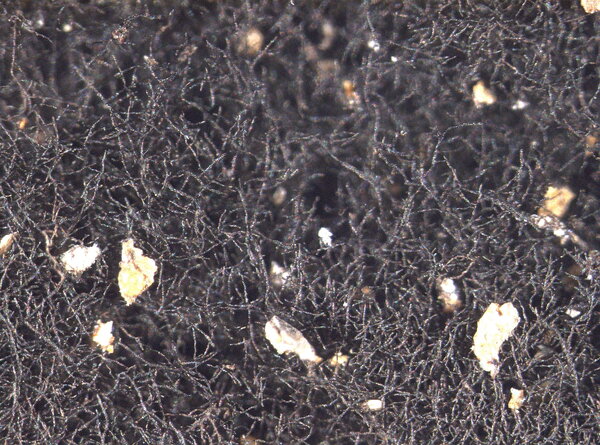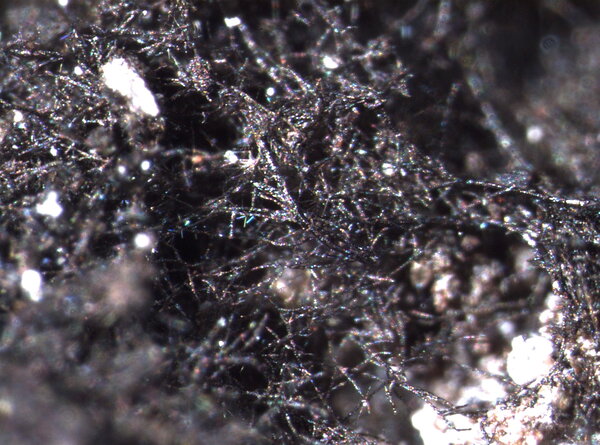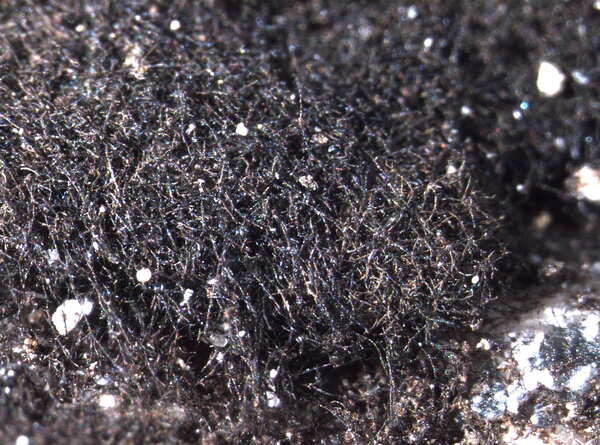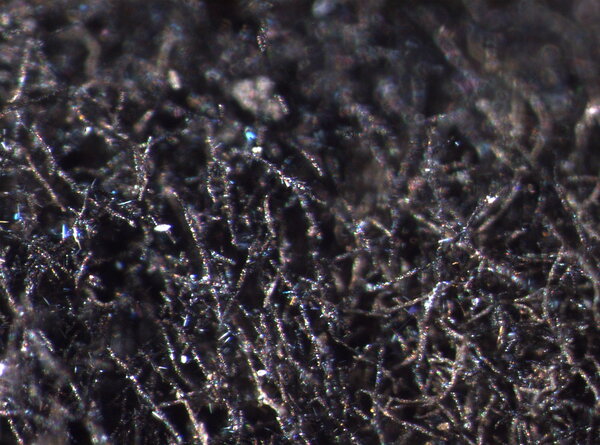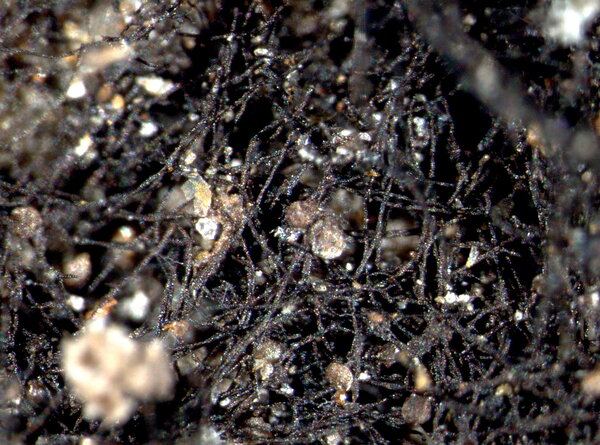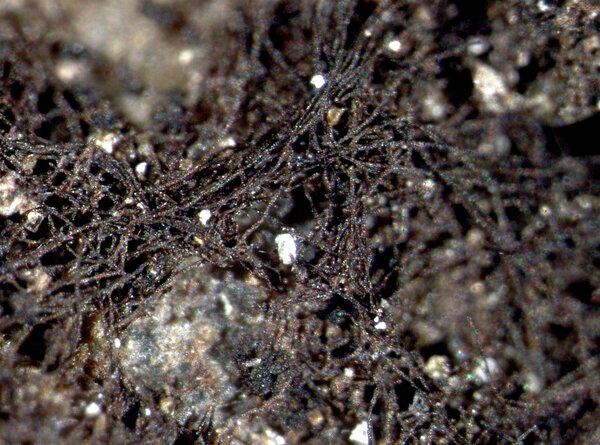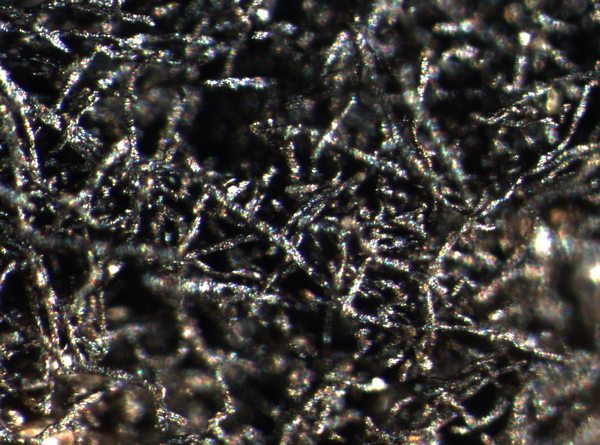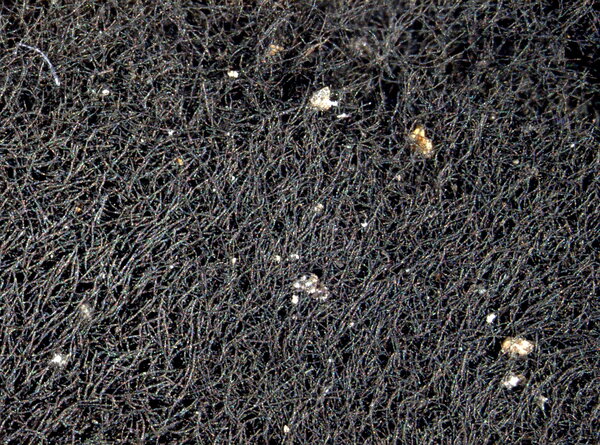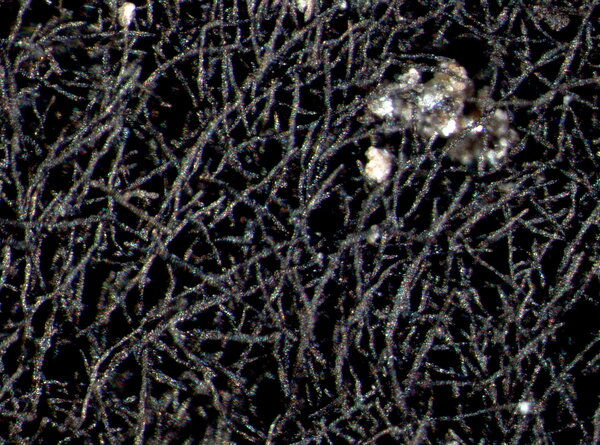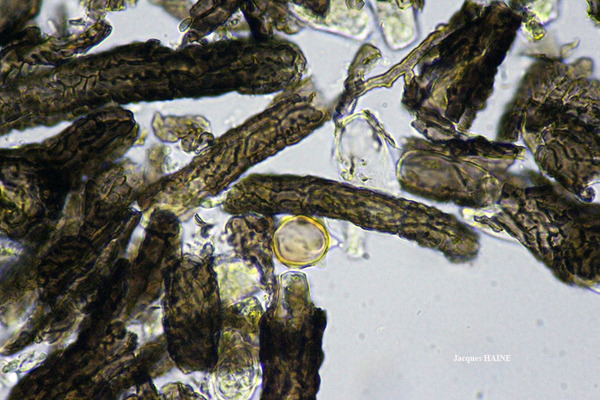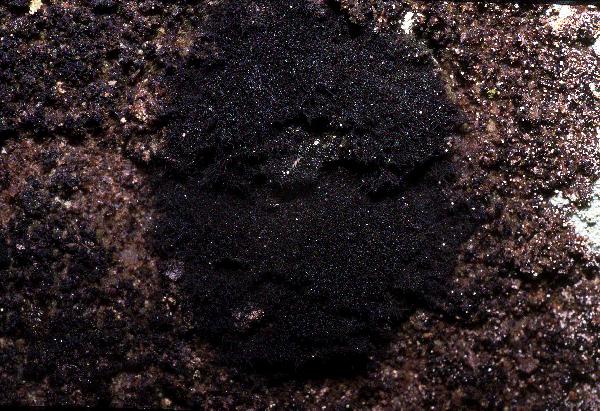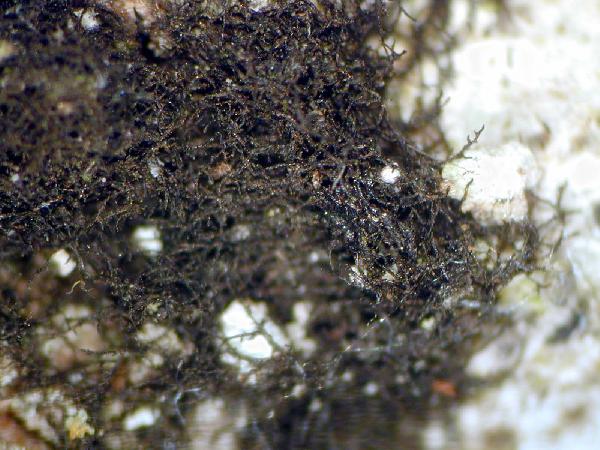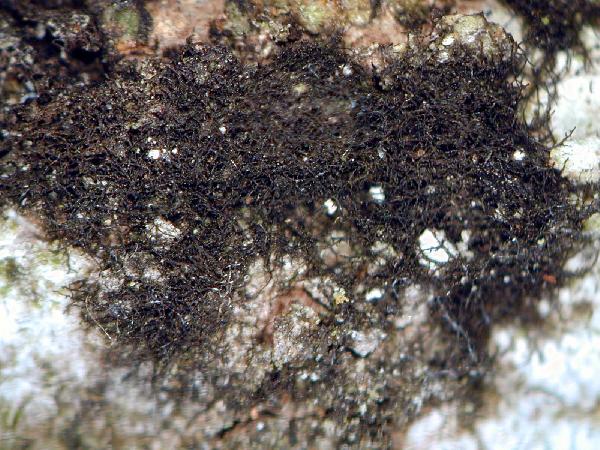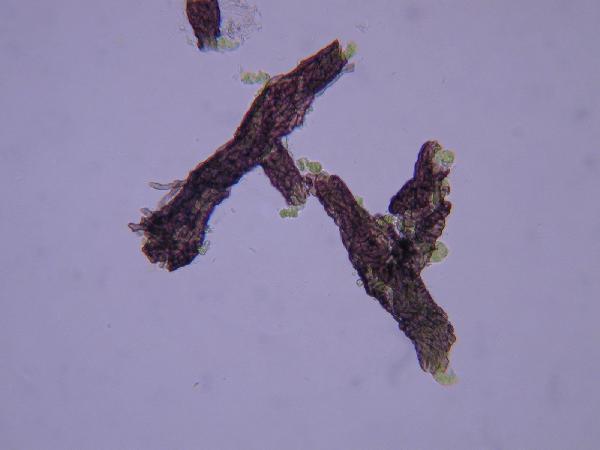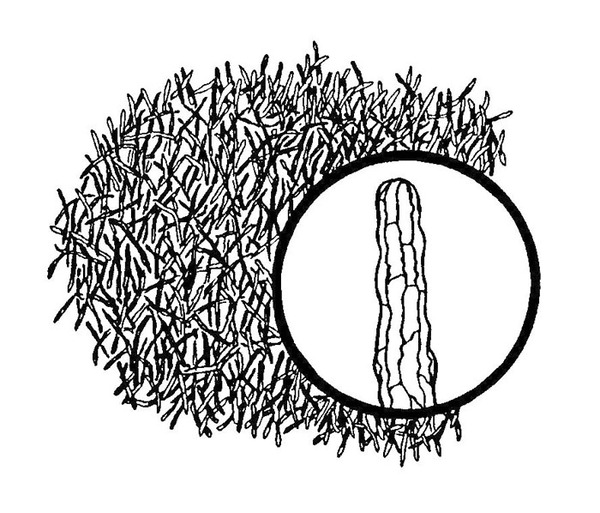Cystocoleus ebeneus (Dillwyn) Thwaites
Ann. Mag. Nat. Hist., ser. 2, 3: 241, 1849. Basionym: Conferva ebenea Dillwyn - Brit. Corferv.: tab. 101, 1809.
Synonyms: Coenogonium ebeneum (Dillwyn) A.L. Sm.; Coenogonium germanicum Glück; Cystocoleus niger auct. non (Huds.) Har.; Racodium ebeneum (Dillwyn) Fr.
Distribution: N - Frl (Tretiach 2004), Ven (Nascimbene & Caniglia 2000), TAA (Caniglia & al. 2002, Nascimbene 2005b, 2006c, Nascimbene & al. 2022), Lomb (Nascimbene 2006), Piem (Matteucci & al. 2013), VA (Piervittori & Isocrono 1999), Emil (Tretiach & al. 2008, Fariselli & al. 2020), Lig (Brunialti & al. 1999). C - Tosc (TSB 34222). S - Bas (Potenza & al. 2014), Cal (Puntillo 1995, 1996, Potenza & al. 2011).
Description: Thallus minutely filamentous, forming mats or small tufts on the rock, consisting of c. 10-13 µm thick, irregularly arranged, black, nodulose, sometimes shortly branched (at right angles) filaments. Filaments covered with dark-brown, tortuous, branched, brown-pigmented, short-celled hyphae with irregularly undulate, thick walls reacting I+ blue-black, forming a dense network closely surrounding and adhering to single filaments of Trentepohlia. Apothecia and pycnidia unknown. Photobiont trentepohlioid. Spot tests: all negative. Chemistry: without lichen substances. Note: a cool-temperate to boreal-montane, probably holarctic lichen found on vertical to rain-protected surfaces of siliceous rocks in very humid situations, more rarely on soil. The species often grows mixed with Racodium rupestre, forming black, felt-like patches over extensive areas of rock; the most commonly associated lichens are species of Lepraria; much overlooked, and certainly more widespread, at least in the Alps.
Growth form: Crustose
Substrata: rocks
Photobiont: Trentepohlia
Reproductive strategy: mainly asexual, by thallus fragmentation
Most common in areas with a humid-warm climate (e.g. most of Tyrrenian Italy)
In underhangs rarely wetted by rain
Commonnes-rarity: (info)
Alpine belt: absent
Subalpine belt: extremely rare
Oromediterranean belt: extremely rare
Montane belt: very rare
Submediterranean belt: extremely rare
Padanian area: absent
Humid submediterranean belt: very rare
Humid mediterranean belt: extremely rare
Dry mediterranean belt: absent

Predictive model
Herbarium samples
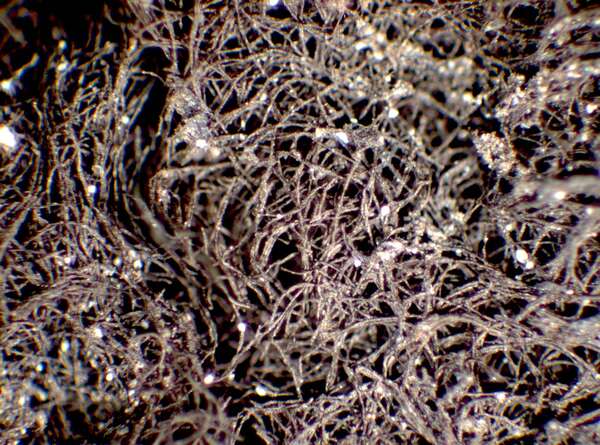

P.L. Nimis; Owner: Department of Life Sciences, University of Trieste
Herbarium: TSB (28586)
2001/11/23
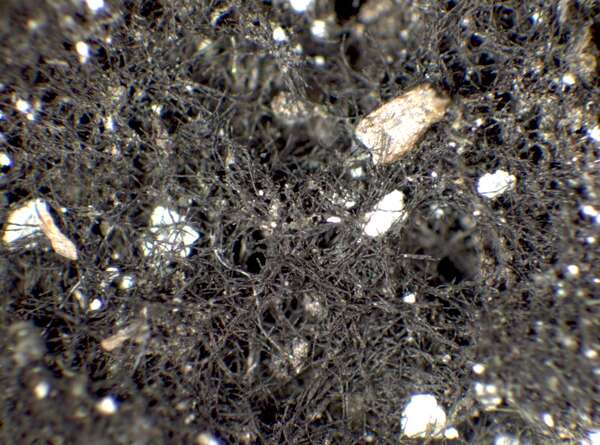

P.L. Nimis; Owner: Department of Life Sciences, University of Trieste
Herbarium: TSB (34822)
2002/02/12
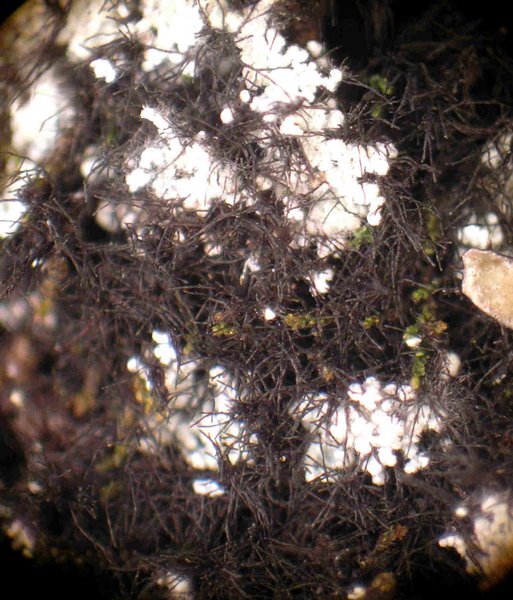

Curtis Randall Björk – CC BY-SA 4.0
British Columbia, Clearwater Valley Date: 2010-11-03 On siliceous boulder talus
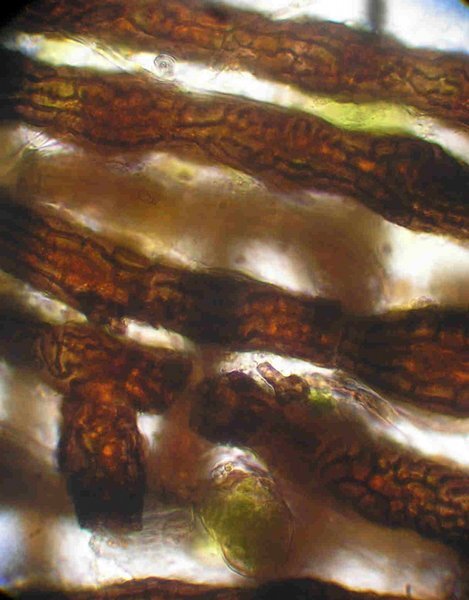

Curtis Randall Björk – CC BY-SA 4.0
British Columbia, Clearwater Valley Date: 2010-11-03 On siliceous boulder talus
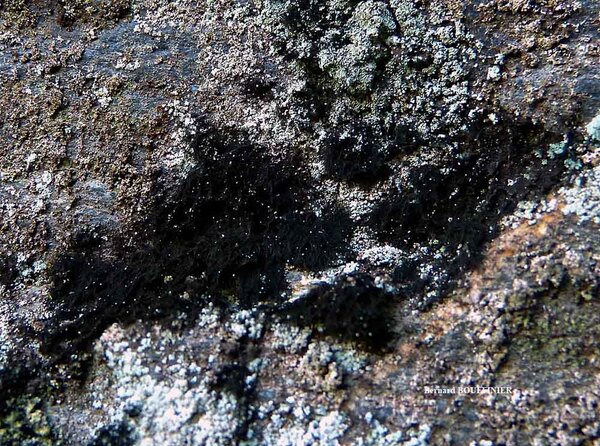
Bernard Bouffinier - Source: http://www.lichensmaritimes.org/index.php?task=fiche&lichen=602&lang=en
France, Roc'h Trédudon
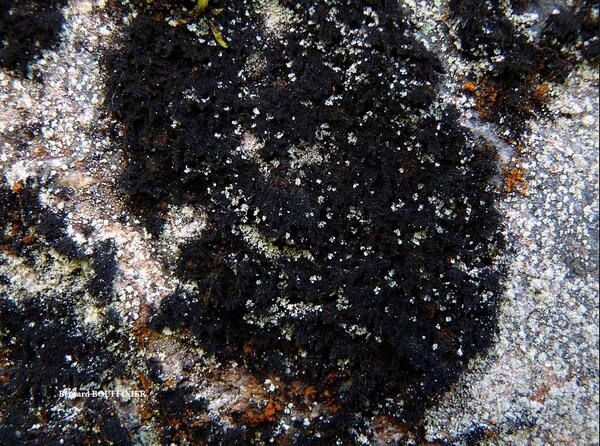
Bernard Bouffinier - Source: http://www.lichensmaritimes.org/index.php?task=fiche&lichen=602&lang=en
France, Roc'h Trédudon
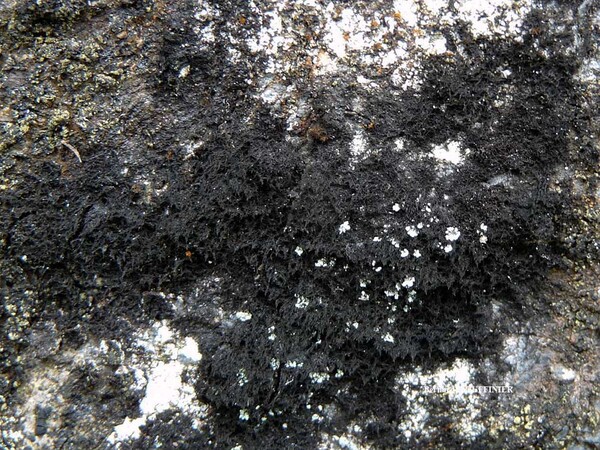
Bernard Bouffinier - Source: http://www.lichensmaritimes.org/index.php?task=fiche&lichen=602&lang=en
France, Roc'h Trédudon
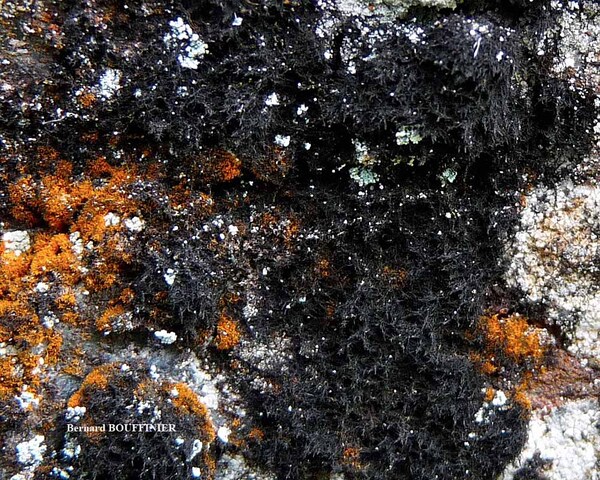
Bernard Bouffinier - Source: http://www.lichensmaritimes.org/index.php?task=fiche&lichen=602&lang=en
France, Roc'h Trédudon
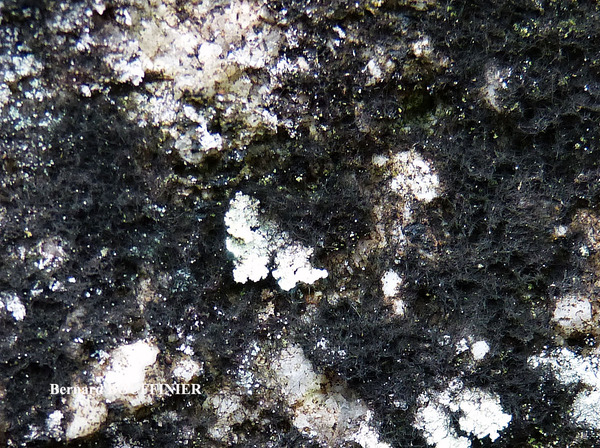
Bernard Bouffinier - Source: http://www.lichensmaritimes.org/index.php?task=fiche&lichen=602&lang=en
France, Huelgoat
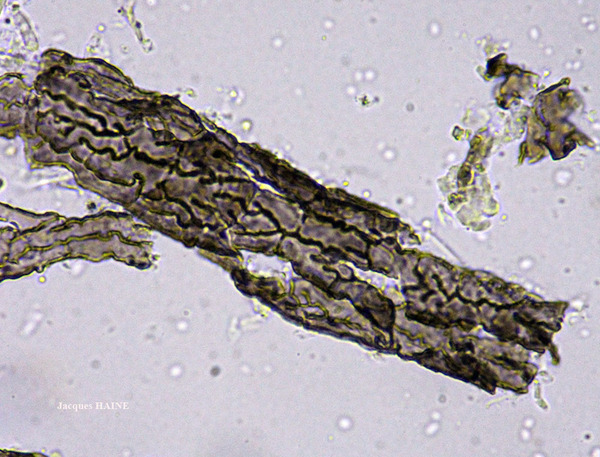
Jacques Haine - Source: http://www.lichensmaritimes.org/index.php?task=fiche&lichen=602&lang=en
France, Ardennes
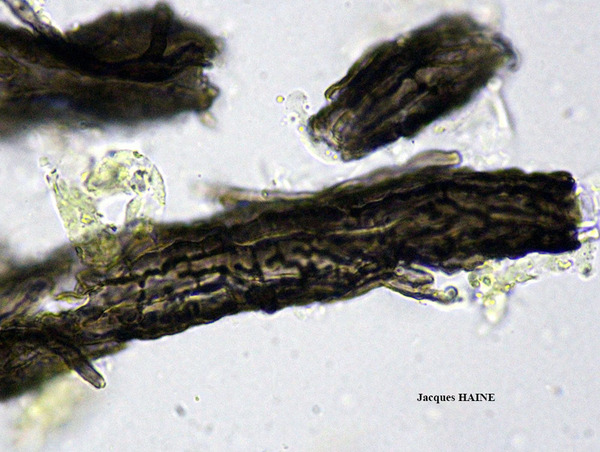
Jacques Haine - Source: http://www.lichensmaritimes.org/index.php?task=fiche&lichen=602&lang=en
France, Ardennes
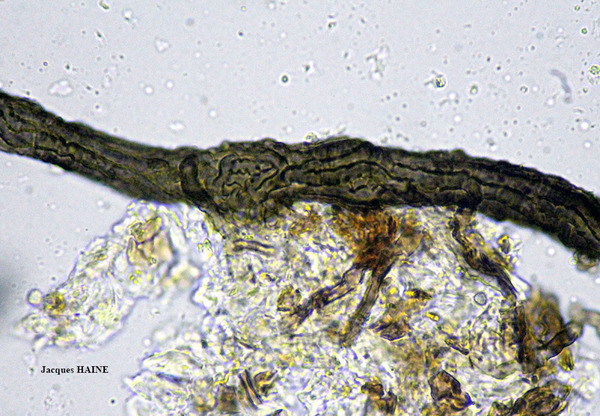
Jacques Haine - Source: http://www.lichensmaritimes.org/index.php?task=fiche&lichen=602&lang=en
France, Ardennes
Growth form: Crustose
Substrata: rocks
Photobiont: Trentepohlia
Reproductive strategy: mainly asexual, by thallus fragmentation
Most common in areas with a humid-warm climate (e.g. most of Tyrrenian Italy)
In underhangs rarely wetted by rain
Commonnes-rarity: (info)
Alpine belt: absent
Subalpine belt: extremely rare
Oromediterranean belt: extremely rare
Montane belt: very rare
Submediterranean belt: extremely rare
Padanian area: absent
Humid submediterranean belt: very rare
Humid mediterranean belt: extremely rare
Dry mediterranean belt: absent

Predictive model
| Herbarium samples |


P.L. Nimis; Owner: Department of Life Sciences, University of Trieste
Herbarium: TSB (28586)
2001/11/23


P.L. Nimis; Owner: Department of Life Sciences, University of Trieste
Herbarium: TSB (34822)
2002/02/12


Curtis Randall Björk – CC BY-SA 4.0
British Columbia, Clearwater Valley Date: 2010-11-03 On siliceous boulder talus


Curtis Randall Björk – CC BY-SA 4.0
British Columbia, Clearwater Valley Date: 2010-11-03 On siliceous boulder talus

Bernard Bouffinier - Source: http://www.lichensmaritimes.org/index.php?task=fiche&lichen=602&lang=en
France, Roc'h Trédudon

Bernard Bouffinier - Source: http://www.lichensmaritimes.org/index.php?task=fiche&lichen=602&lang=en
France, Roc'h Trédudon

Bernard Bouffinier - Source: http://www.lichensmaritimes.org/index.php?task=fiche&lichen=602&lang=en
France, Roc'h Trédudon

Bernard Bouffinier - Source: http://www.lichensmaritimes.org/index.php?task=fiche&lichen=602&lang=en
France, Roc'h Trédudon

Bernard Bouffinier - Source: http://www.lichensmaritimes.org/index.php?task=fiche&lichen=602&lang=en
France, Huelgoat

Jacques Haine - Source: http://www.lichensmaritimes.org/index.php?task=fiche&lichen=602&lang=en
France, Ardennes

Jacques Haine - Source: http://www.lichensmaritimes.org/index.php?task=fiche&lichen=602&lang=en
France, Ardennes

 INDEX FUNGORUM
INDEX FUNGORUM
 GBIF
GBIF
 DOLICHENS
DOLICHENS
